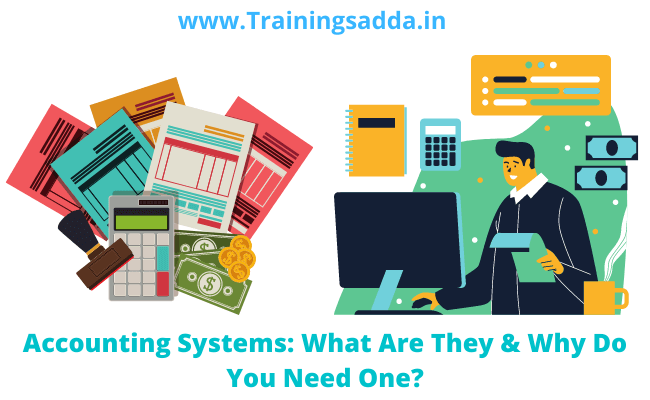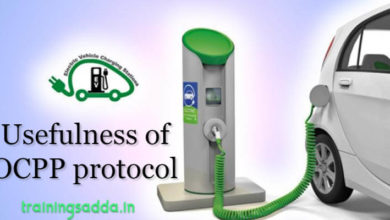Accounting Systems: What Are They & Why Do You Need One

Last Updated on February 23, 2021 by Prabhakar A
Imagine having to spend hours manually handling the financial aspects of your business. Money comes in from customers and goes out to suppliers. You also take care of staff payroll and other aspects of running the business.
The process can be taxing and time-consuming. You may end up making costly mistakes, sometimes even without realizing it. When you try balancing the books, things do not add up.
The auditor is on your neck asking for information. The taxman is also not far behind because there are glaring errors you cannot account for. What you need to do to take care of the problem once and for all is to have the right accounting systems.
Learn more: Top 5 Best Master in Finance Programs to Boost Your Career
But what are accounting systems, and why do you need them? Our article will provide all the information you need to know.
Table of Contents
Accounting Systems; What Are They?
An accounting system is any system you put in place to handle the financial aspects of the business. You have the option of manual or computerized systems.
Computerized accounting systems use automation and are excellent for streamlining operations. It requires the right software, and there are tons of options available. Such include QuickBooks, FreshBooks, Zoho Books, and Xero.
With such in place, you can handle a wide range of transactions like purchasing, sales, liabilities, and assets. Others are report generation that helps in decision making.
There are different accounting systems available. These are:-
Managerial Accounting
Managers use such systems to generate information for operational and planning activities. They get to see where the money goes and how best to reduce expenses.
The data helps in forecasting. It will include things like cost-volume-profit analysis, variance analysis, and risk management.
Cost Accounting
Cost accounting looks at the cost of production. It covers expenditure, labor, and anything else that contributes to the final product.
Finance Accounting
Finance accounting focuses on investors. It includes areas like income statements, balance sheets, and cash flows.
Know more: Tips for Effectively Using Your HR Metrics
Inventory Accounting
Inventory accounting allows for tracking and planning. RFID and Barcode tracking are good examples.
Industry-Specific Accounting
Industry-specific accounting systems are, well, industry-specific. They take into consideration the different needs of organizations working in particular industries. It then provides accounting solutions that are unique to them.
Not-for-Profit Accounting
Not-for-profit accounting helps with transparency and management of funds. The most critical aspect is to give relevant expenditure reports.
What to Look For When Shopping For the Right Accounting System?
The right accounting system should improve efficiency. Each organization has its specific requirements. Determine what yours are because the information will guide the buying decision. Look out for the following.
Ease-of-Use and Cost-Efficient
The system should be easy to use. The whole aim of automation is to remove complexity in processes. Do not buy software that will have everyone scratching their heads in consternation.
Your needs will determine the type of software you buy. Most of them have subscription packages, so you can only pick what works for you. Also, check that there are no hidden costs that may make it more expensive.
Read more: How to Grow Your Startup Business Effectively
Some may charge for maintenance, upgrades, or any add-ons. Determine whether you are comfortable with a monthly or annual subscription. Having this information upfront allows you to plan well.
Customizable and Learner-Friendly
You want software that is beginner-friendly or at least gives you learning options. QuickBooks training, for example, is accessible to organizations that buy the software. It eliminates the stress of hiring a consultant to train the team.
Also, look for customizable systems. There may be adjustments or modifications you may need to make. It can help make the system easier to use.
Purchase those that allow for third-party integrations. You get more functionality out of the system if you can tweak it as you wish.
Scalability and Multiple Functionalities
Your accounting system should grow with your business. It should also allow for flexibility and versatility in its service offering.
You don’t want to have different systems for the different financial tasks. There are fantastic options available, so take your time to do proper research.
Customer Support
Your accounting system should never be down for any reason. Check that the Company offers excellent after-sales support. You should be able to reach them on many platforms. Such are telephone, email, chat, or ticketing.
Read customer reviews for an honest opinion on what you can expect.
Accounting Software, Why You Need Them
We have already hinted above on the importance of accounting systems. We can summarize them as:
- Better efficiency in the processes.
- Time-saving and speed with the right automation.
- Better accuracy by eliminating errors that may arise from manual handling of work.
- Quick access to data anytime you need them. You don’t have to sift through files of paper for information.
- Better security for your data. Third parties cannot access the information due to different security features. Password protection and off-site storage give you more control and safety.
- You can back up your data in a safe location. In case of a system failure or breach, you do not lose anything.
- Accounting systems allow for scalability. With simple upgrades, your system can handle a larger work capacity.
- They are cost-effective. While it is true the initial installation cost may be a bit high, think about the long-term. Greater efficiency saves on time. You have better accuracy meaning more reliable data. You don’t have to hire many people to do the accounting. One person with the right software can now handle tasks that would have needed five or more people.
- You get multi-functionality benefits. You can handle a wide range of tasks at once. You will not achieve the same if you’re doing it manually.
Final Thoughts
Accounting systems are critical for the efficient handling of financial aspects of a business. The right system will help save time and cut costs. With the right security features, you keep your data safe and secure.
Also Read: Best 5 Valuable Tips For Aspiring GST Consultants
When shopping for the right system, determine what your business needs are first. Every organization is unique in its requirements. Read customer reviews so that you know what you are buying.
Comments
0 comments




